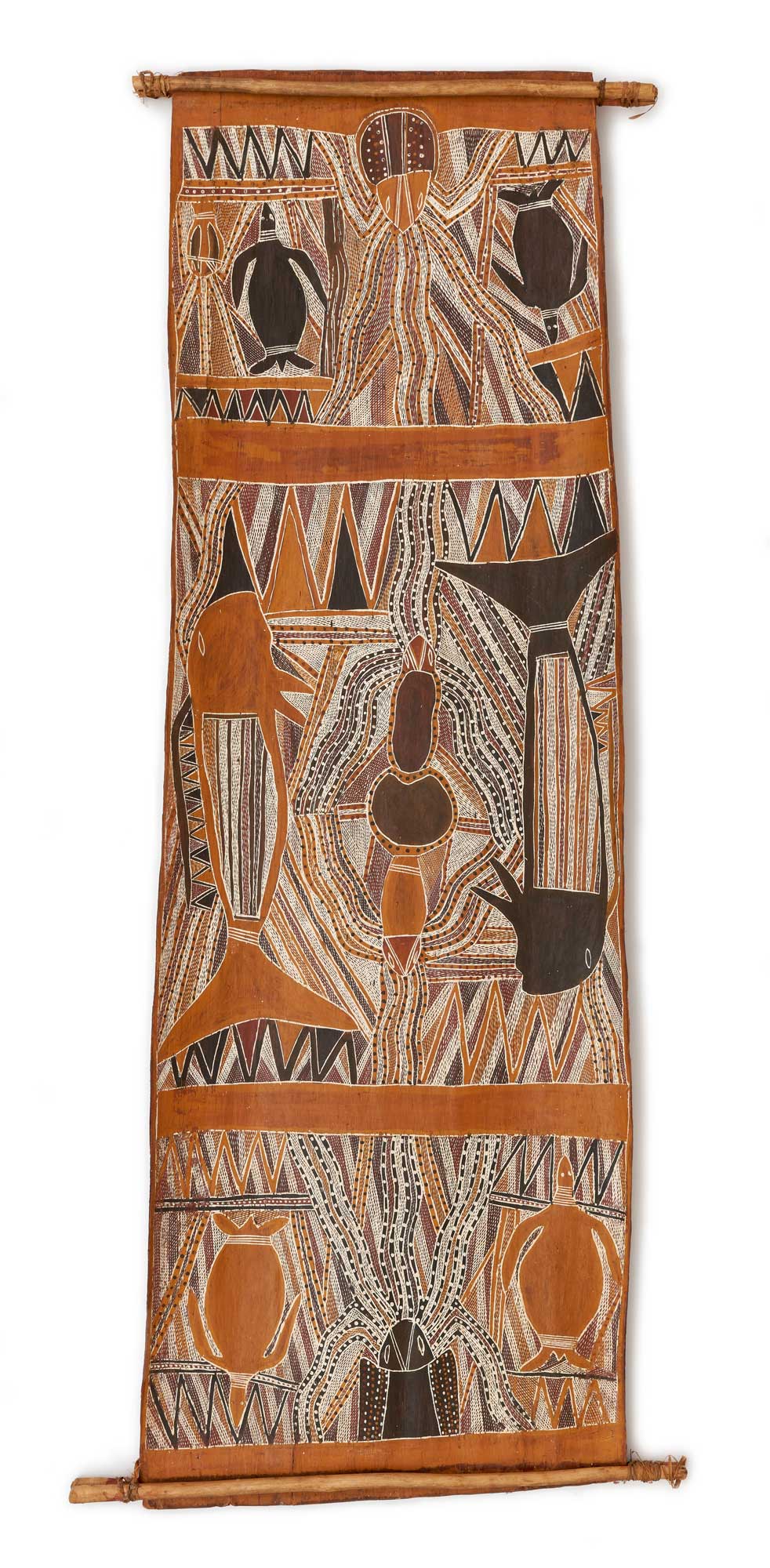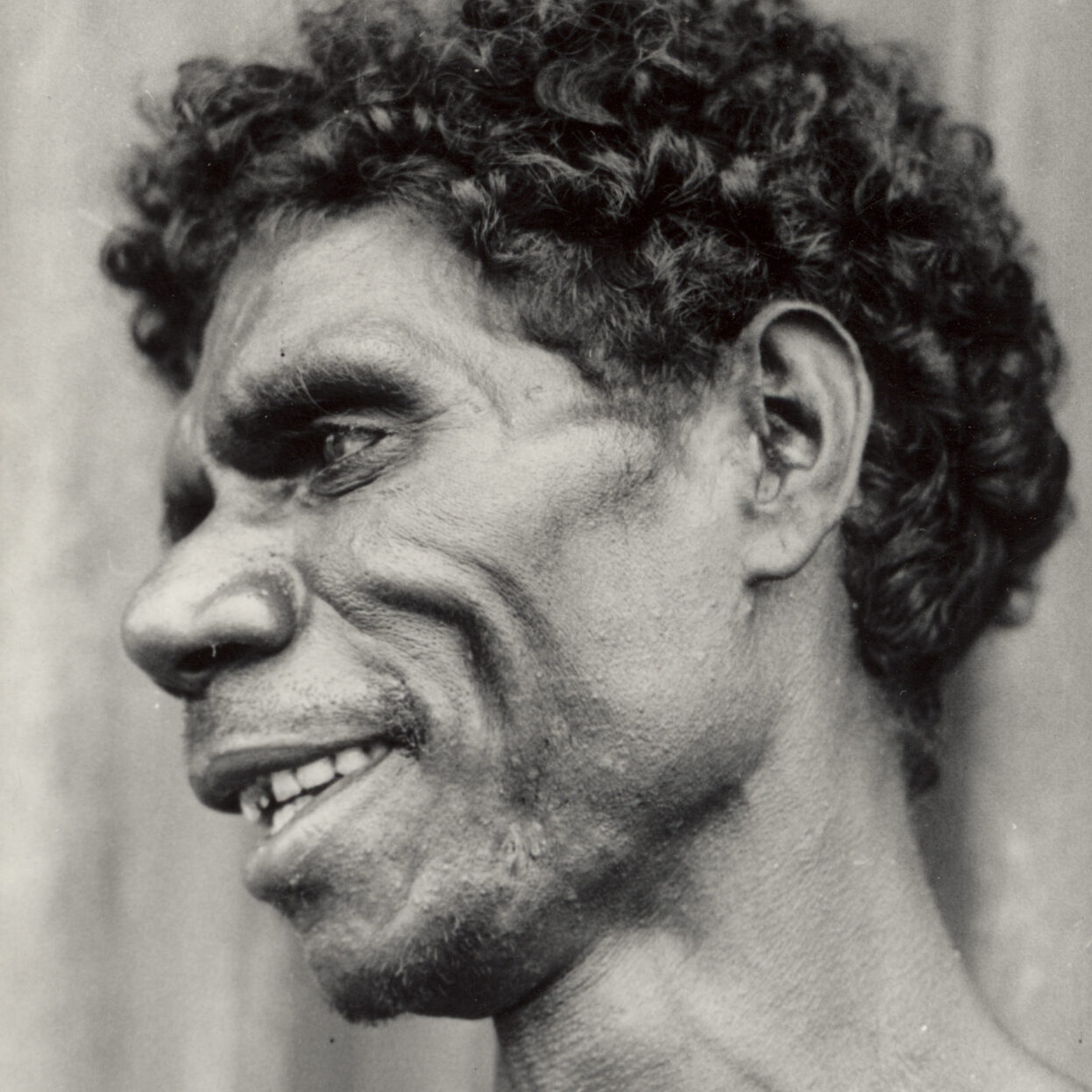
"People in the Dholtji area come from the sea. My father told me that we started our life from the coral reef. This coral, known as Ŋulwardo, was alive before it changed itself into rock. At this time, our two great ancestral spirits—Birrinydji and Marryalyan—were in these parts, and they were thinking about creating human beings. They thought hard about the skeleton and decided that they could get it from the coral, which resembles bone. The coral was shaped into a skeleton, and the human shape was called Ŋulwardo.
Marryalyan added meat to the bones, and now there was this man living in the sea, and he was called Rambila—the Squid Man. Marryalyan then brought Rambila and changed his image. He grew longer arms and became Mäṉḏa, the Octopus Man. The next step was for Mäṉḏa to become a man on the dry land. Marryalyan sent the spirit of Mäṉḏa and Rambila to a young mother, so that her baby became a special saltwater kind, which was the first Warramiri child.
I am a Warramiri. Everything that I have is not my own but comes from those three, and also the whale. I have these spirits in me. I have the Oceanal Man in me. I have their honor and they are my maḏayin, my revered ancestors. "
– DAVID BURRUMARRA MBE
Additional Information
Decade
1965
Medium
Natural pigments on eucalyptus bark
Dimensions (IN)
62 1/8 x 26 3/4
Dimensions (CM)
157.8 x 67.95
Credit
Kluge-Ruhe Aboriginal Art Collection of the University of Virginia. Edward L. Ruhe Collection. Gift of John W. Kluge, 1997. 1993.0004.062.
Narrative
Warramiri
The Warramiri is a large seafaring Yirritja clan. The clan homeland is between Barrkira and...
Location
1960s
The 1960s were a decade of tumult and triumph for Yolŋu art and artists. In...
About The Artist(s)

Clan
Gumatj
Artist Dates
c.1920-1974
Alternative Names
Djargudjargu, Djarkudjarku, Djarnkudjarnku, Djerku Djerku, Jargujargu, Jarrkujarrku
Collections Represented
Art Gallery of Western Australia
Kluge-Ruhe Aboriginal Art Collection of the University of Virginia
